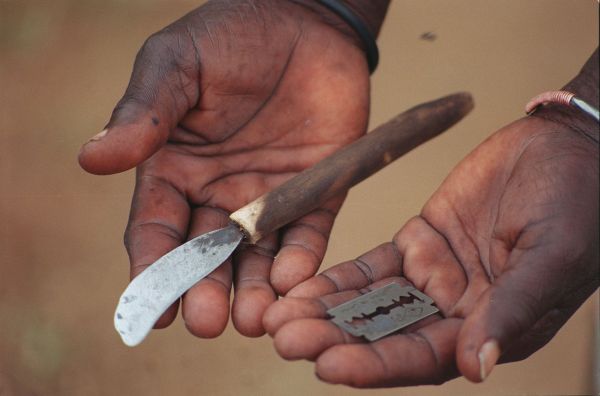
90 Percent Of Nigerians Advocate End Of FGM -Report
In line with the aim of the Sustainable Development Goals (SDGs) to eradicate all harmful practices, such as child, early and forced marriage and Female Genital Mutilation (FGM), about 90 percent of Nigerians have expressed the need to end the practice of FGM in the country.
Nigerians in the latest public opinion poll results released by the Ngozi Okonjo-Iweala Polls (NOIPolls), Nigeria’s premier opinion polling organization revealed that they will support legislation to end FGM, popularly known as female circumcision.
The findings revealed that although 87 percent expressed knowledge of FGM, 64 percent of this proportion confirmed that FGM is not prevalent in their locality while 36 percent disclosed that there are various degrees of prevalence within their communities with high level of prevalence across Ondo, Kwara, Enugu, Delta, Adamawa, Ebonyi, Ondo, Cross-River, Anambra and Niger states.
Affirming support for the practice, the opinion poll results revealed that 88 percent stated that they do not support it while 12 percent supported the practice with residents from the South-West zone accounting for the larger proportion of Nigerians in this category.
The organization maintained that while this development may be deemed as a low number in comparison with results from other countries such as; Somalia with 98 percent , Guinea with 96 percent, Djibouti with 93 percent, Egypt with 91 percent, Eritrea, Mali, Sierra Leone and Sudan with 88 percent respectively, which reported a high prevalence of FGM, as revealed by a study undertaken by the United Nations International Children’s Emergency Fund, (UNICEF), it still highlights the need for a call to action to completely eradicate this practice in Nigeria with 36 percent prevalence.
They advocated that education of the general public at all levels with emphasis on the dangers and undesirability of FGM is paramount as 10 percent clearly disclose that they will not support any legislation to put an end to FGM in Nigeria.




